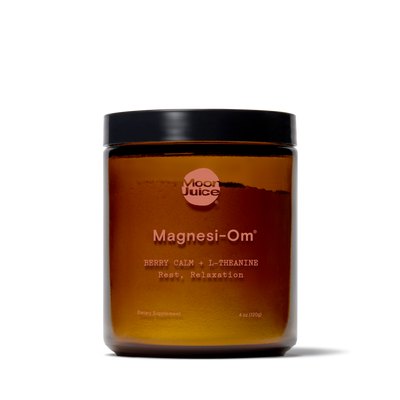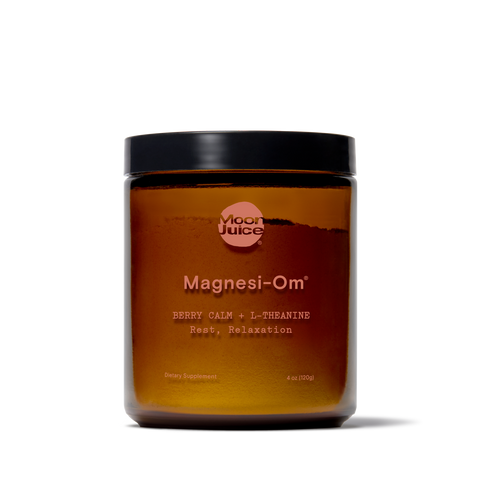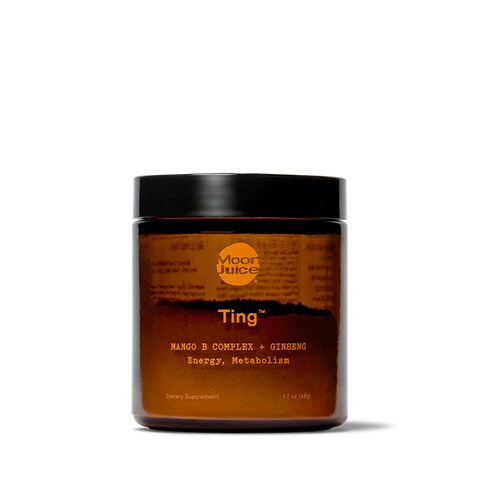Water is essential for hydration, but your body can’t function on H2O alone. It also needs electrolytes to maintain the osmotic balance between and inside cells and regulate a host of other functions in your nerves, muscles, and brain.
Optimal hydration involves both water and electrolytes. These electrically charged minerals are like the power conduits of the body, helping to keep the lights on. However, sometimes you may experience an electrolyte imbalance when there isn’t an adequate supply in the body. With low electrolyte levels, you may experience muscle cramping, fatigue, or dizziness. To maintain proper levels, it's important to replenish lost electrolytes regularly.
So, what's the best way to replenish electrolytes if you can’t satisfy your body’s electrolyte needs with water alone?
Here are 7 ways to guide you on how to replenish electrolytes and keep your body happy.
Food-Based Electrolyte Sources
Electrolytes work together to balance your body’s fluids and maintain various functions. You need the right amount of each mineral to keep things in check. Lacking one mineral can throw off the balance of the others.
The electrolytes your body needs in the highest quantities are:
- Sodium
- Potassium
- Chloride
But it also needs Magnesium, Calcium, and Phosphate in moderate quantities.
One way to get the full benefits of electrolytes is to replenish through diet. Here are a few foods to help increase low electrolyte levels that contain the electrical minerals your body needs to function:
1. Avocados
Avocados are nutritionally dense, containing healthy fats, vitamins, and fiber. They’re also packed with electrolytes, including Potassium and Magnesium.
If you’re not into the flavor, you can still benefit from this healthy food by cooking with its oil. Avocado oil has a high smoke point and a neutral flavor, so it’s great for all sorts of cooking. And it’s rich in a fatty acid called oleic acid, which may play a role in regulating blood pressure. The electrolyte Potassium also helps regulate blood pressure because of its fluid-balancing properties and role in muscle function.
2. Bananas
If you want to increase your electrolyte consumption, fruits and veggies are a solid choice. In addition to vitamins, most produce contains essential minerals like Potassium and Magnesium.
But bananas are kind of a star in this domain. One medium-sized banana contains an impressive 450 milligrams (mg) of Potassium. They’re also a source of Magnesium and Manganese.
3. Nuts and seeds
Crunchy, rich-flavored nuts and seeds often show up as part of healthy diet recommendations. That’s because they pack a powerful nutritional punch. Even a small serving of nuts or seeds can provide a whopping nutritional benefit.
They're also great sources of natural electrolytes. Nuts contain healthy fats, antioxidants, and vitamins galore. Most nuts, including almonds, cashews, and Brazil nuts, also contain Magnesium.
Seeds, too, are quality sources of good fats, vitamins, and minerals. Pumpkin seeds, flaxseeds, and sesame seeds, for example, are all good sources of Magnesium. Many seeds, including chia seeds and poppy seeds, also contain a decent amount of Calcium.
4. Leafy green vegetables
Leafy greens like collards, kale, and Swiss chard are another electrolyte source to consider. In addition to containing fiber, B vitamins, and vitamins A, K, and C, leafy veg like spinach contain minerals like Calcium, Phosphorus, and Magnesium.
Drink-Based Electrolyte Sources
You can increase electrolyte intake through food, but no diet is perfect. And modern agricultural practices have also greatly impacted the mineral content of the food on your plate.
Monocropping and synthetic fertilizers have sapped the soil of essential nutrients, including minerals like Magnesium. That means less of it ends up in the food
at the supermarket and your fridge.
Another option for replacing electrolytes is to opt for beverages high in these electrified minerals. Wondering what drinks have electrolytes in them? The following sources can help you with replenishing electrolytes:
5. Fruit juice
Some fruit juices contain natural electrolytes, but only in small amounts. Still, if you’re looking for a refreshing bev that’s a little more fun than plain water, the following fruit juices contain Potassium, Magnesium, and Phosphorous and trace amounts of other minerals:
- Tart cherry juice
- Orange juice
- Watermelon juice
And, unlike water, pure fruit juice contains antioxidants and vitamins. Just be sure to check the ingredient list for sugar content and other additives like artificial dyes.
6. Coconut water
Coconut water is a popular choice for rehydrating, especially during the hot summer months.
Most people enjoy the mild flavor of this drink which contains Calcium, Potassium, Magnesium, and Phosphorus.
7. Electrolyte-infused drinks
The colorful lineup of sports drinks in your corner store’s drink fridge might be enticing, but most sports drinks contain unnecessary additives like sugar and artificial dyes that you don’t really need. Added sugar might be helpful for endurance athletes who need extra energy to complete hard, long efforts, but it’s not necessary for daily hydration purposes.
So what's another alternative to a sports drink for electrolyte replenishment?
Enter Mini Dew™, a daily electrolyte powder supplement that’s easy to use (just mix 1 teaspoon with 12 oz of water daily) and replenishes mineral stores, including electrolytes.
Sign Up, Nerd Out
Get wellness tips, education, and recipes
delivered straight to your inbox.
Get wellness tips, education,
and recipes delivered
straight to your inbox.
What’s the Best Way to Replenish Electrolytes?
Your body and its needs are unique. How much you sweat, how salty your sweat is, and your diet can affect your electrolyte needs.
The best way to replenish electrolytes varies from person to person. If you’re a long-distance runner training for a marathon in hot weather, a sports drink or beverage containing electrolytes and carbohydrates can help fuel your effort and prevent a crash during or after your workout.
But for daily hydration needs, it’s hard to beat the ease of creating your own DIY electrolyte drink with Mini Dew™. Just mix with water and drink to replenish your electrolyte stores.
Sources
- https://www.hsph.harvard.edu/nutritionsource/food-features/bananas
- https://www.hsph.harvard.edu/nutritionsource/avocados
- https://www.hsph.harvard.edu/nutritionsource/cheese
- https://tools.myfooddata.com/nutrition-facts/171140/wt9
- https://web.extension.illinois.edu/turkey/nutrition.cfm
- https://www.health.harvard.edu/nutrition/quick-start-guide-to-nuts-and-seeds
- https://www.seafoodhealthfacts.org/nutrition/seafood-nutrition-overview/
- https://pubmed.ncbi.nlm.nih.gov/23026007/
- https://pubmed.ncbi.nlm.nih.gov/17277604/

.png?v=1689039743405)
.png?v=1689039756065)










